Y5 Robots Got Talent
£3.00
KS2 National Curriculum:
✓ Identifying structure and themes; participating in discussions and presentations.
Activities in this lesson include learning about common themes for science fiction stories, the structure of a science fiction story, the main features of science fiction stories, how to design a poster and creating a poster showing the key features of science fiction stories.
There is a five-minute evidence-based CPD activity at the end of this lesson which will develop classroom teachers’ skill set. This CPD consists of a research extract on peer assessment with a five-minute activity based on this extract.
Description
These evidence-based learning (EBL) lessons are based on classroom practice that has been proven, by research, to maximise thinking, learning and attainment. From an extensive review of educational research, we identified the eight key classroom thinking and learning skills that were common across these research papers. We named these eight key skills “EBL skills”.
EBL skills have been proven by research to maximise learning because they combine the most productive thinking skills with the most effective learning behaviours. Each of our evidence-based learning lessons uses the English curriculum as a framework through which the eight EBL skills are delivered.
Teachers also have the opportunity to add to their own skill set or refresh their existing skills with our five-minute CPD activity, based on one of the EBL skills used in this lesson.
The skills in bold below are the EBL skills developed in this Science Fiction lesson. Click on each skill to learn more about that skill.
- Collaboration
- Thinking Skills
- Peer Assessment
- Peer Teaching
- Self-Assessment
- Metacognition
- Self-Regulation
- Independent Learning
1 review for Y5 Robots Got Talent
Only logged in customers who have purchased this product may leave a review.
Related products
-


Y6 The Intergalactic Guide to Paragraphs
£3.00 Add to basket £3.00Add to basket
£3.00Add to basketKS2 National Curriculum:
✓ Developing cohesion within paragraphs; using fronted adverbials.
A science fiction lesson with a range of activities that include structuring paragraphs, using fronted adverbials and writing paragraphs for a science fiction story.
There is a five-minute evidence-based CPD activity at the end of this lesson which will develop classroom teachers’ skill set. This CPD consists of a research extract on self-assessment with a five-minute activity based on this extract.
VIEW -
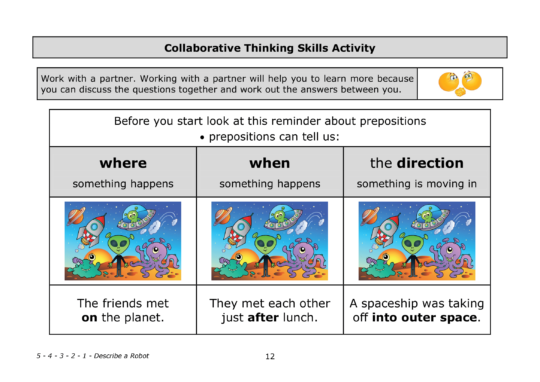
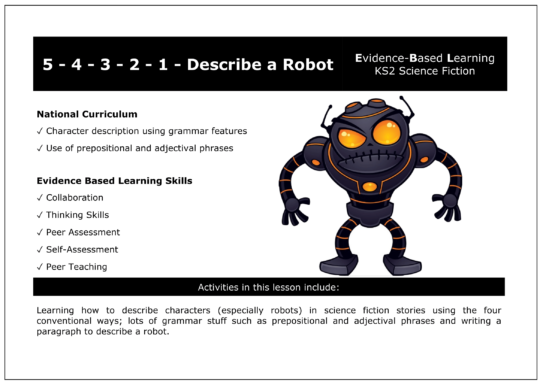
Y5 Describe a Robot
£3.00 Add to basket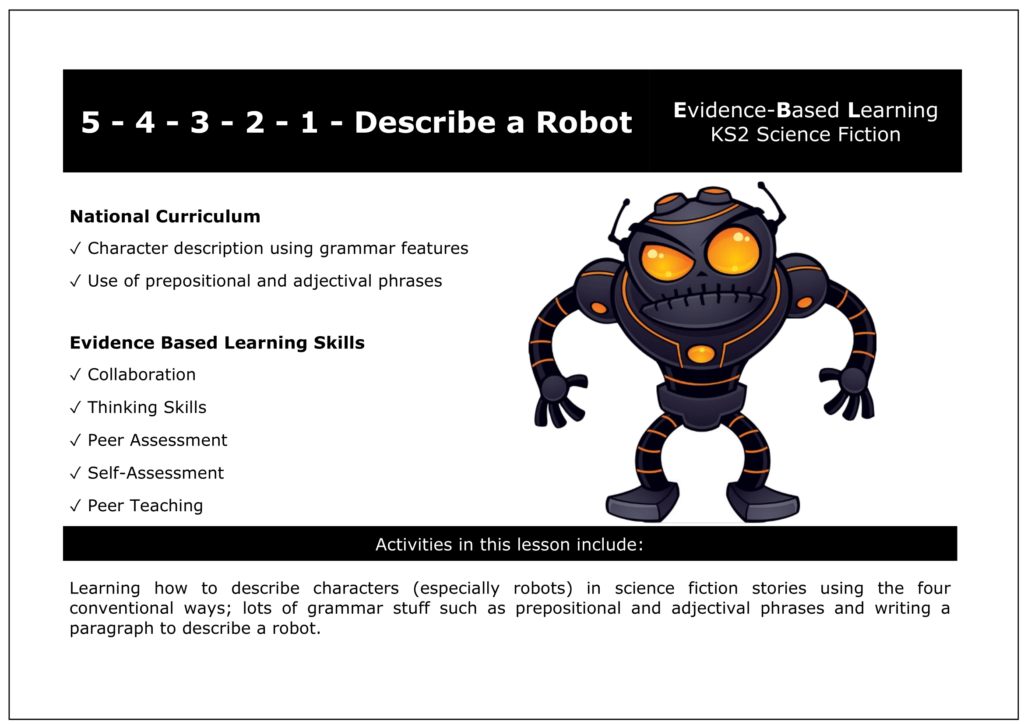 £3.00Add to basket
£3.00Add to basketKS2 National Curriculum:
✓ Character description using grammar features; use of prepositional and adjectival phrases.
Activities in this lesson include learning how to describe characters (especially robots) in science fiction stories using the four conventional ways; lots of grammar stuff such as prepositional and adjectival phrases and writing a paragraph to describe a robot.
The five-minute evidence-based CPD activity at the end of this lesson offers teachers an opportunity to add to their skill set. The CPD activity in this lesson develops peer teaching by asking the question “what are the benefits of peer teaching?”
VIEW -
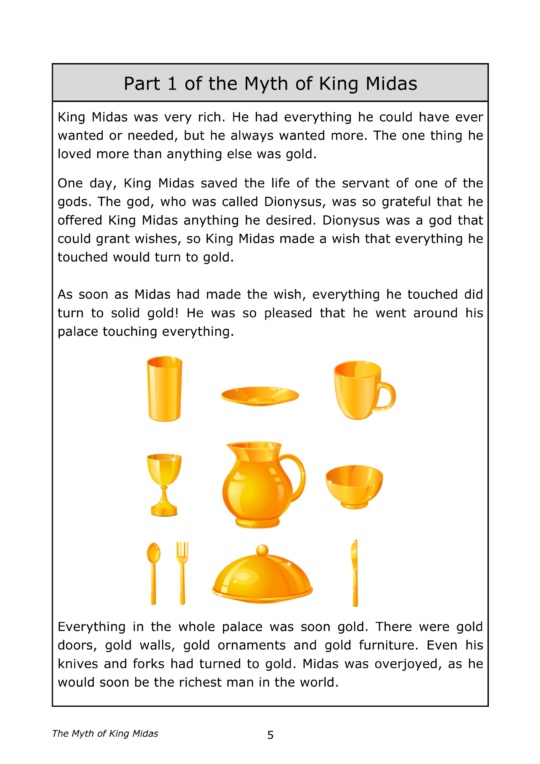
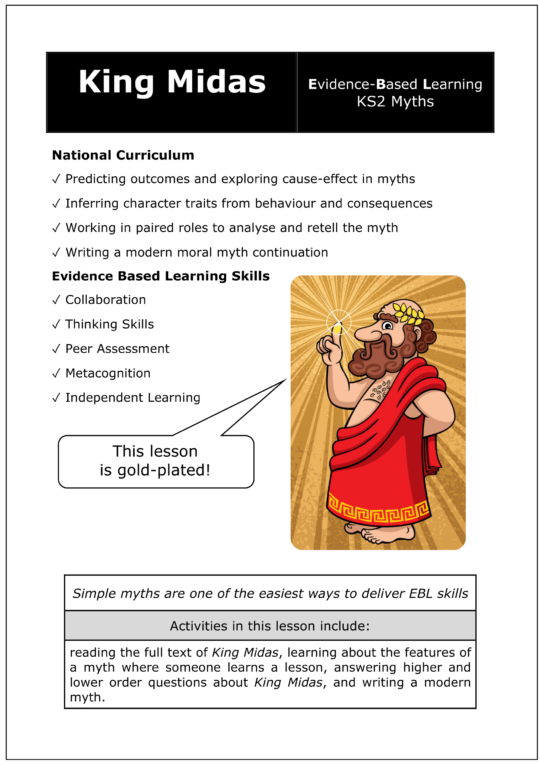
Y5 King Midas
£3.00 Add to basket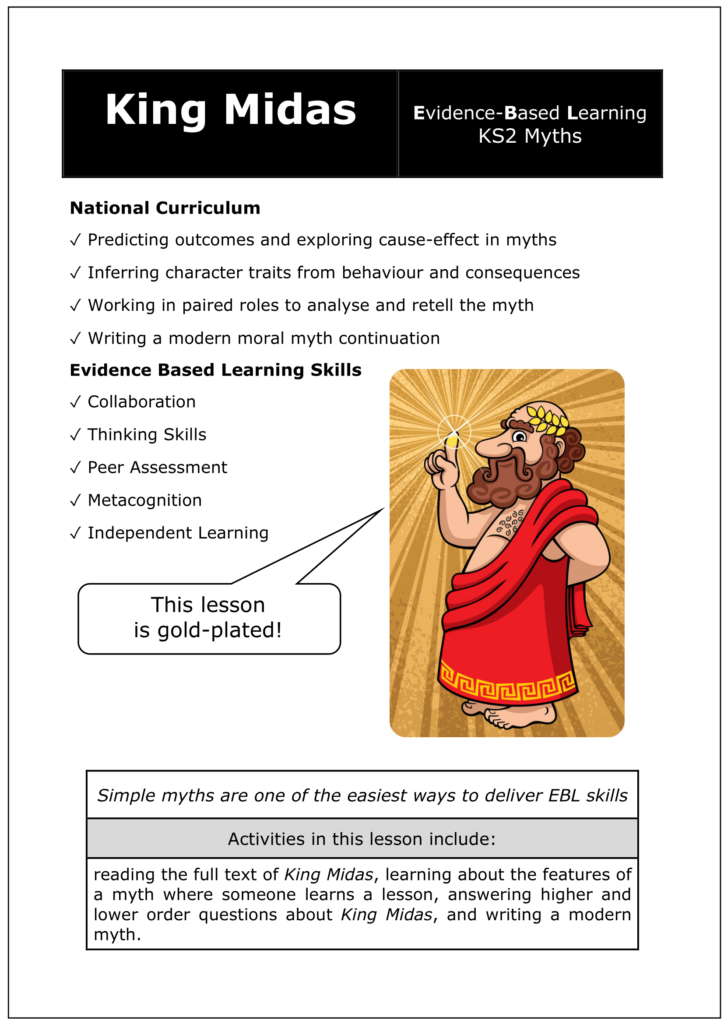 £3.00Add to basket
£3.00Add to basketKS2 National Curriculum:
✓ Predicting outcomes and exploring cause-effect in myths
✓ Inferring character traits from behaviour and consequences
✓ Working in paired roles to analyse and retell the myth
✓ Writing a modern moral myth continuationActivities in this lesson include reading the full text of King Midas, learning about the features of a myth where someone learns a lesson, answering higher and lower order questions about King Midas, writing a tweet and writing a modern myth.
There is a five-minute evidence-based CPD activity at the end of this lesson which will develop classroom teachers’ skill set. This CPD consists of a research extract on peer assessment with a five-minute activity based on this extract.
VIEW -


Y6 Science Fiction is Alien to me
£3.00 Add to basket £3.00Add to basket
£3.00Add to basketKS2 National Curriculum:
✓ Structuring narrative writing; using descriptive language and varied sentence structures.
Activities in this lesson include a reminder of the features of science fiction stories, a step-by-step guide to structuring a science fiction story (which uses guided questions), using adjectival phrases and finally, writing a science fiction story.
There is a five-minute evidence-based CPD activity at the end of this lesson which will develop classroom teachers’ skill set. This CPD consists of a research extract on peer assessment with a five-minute activity based on this extract.
VIEW


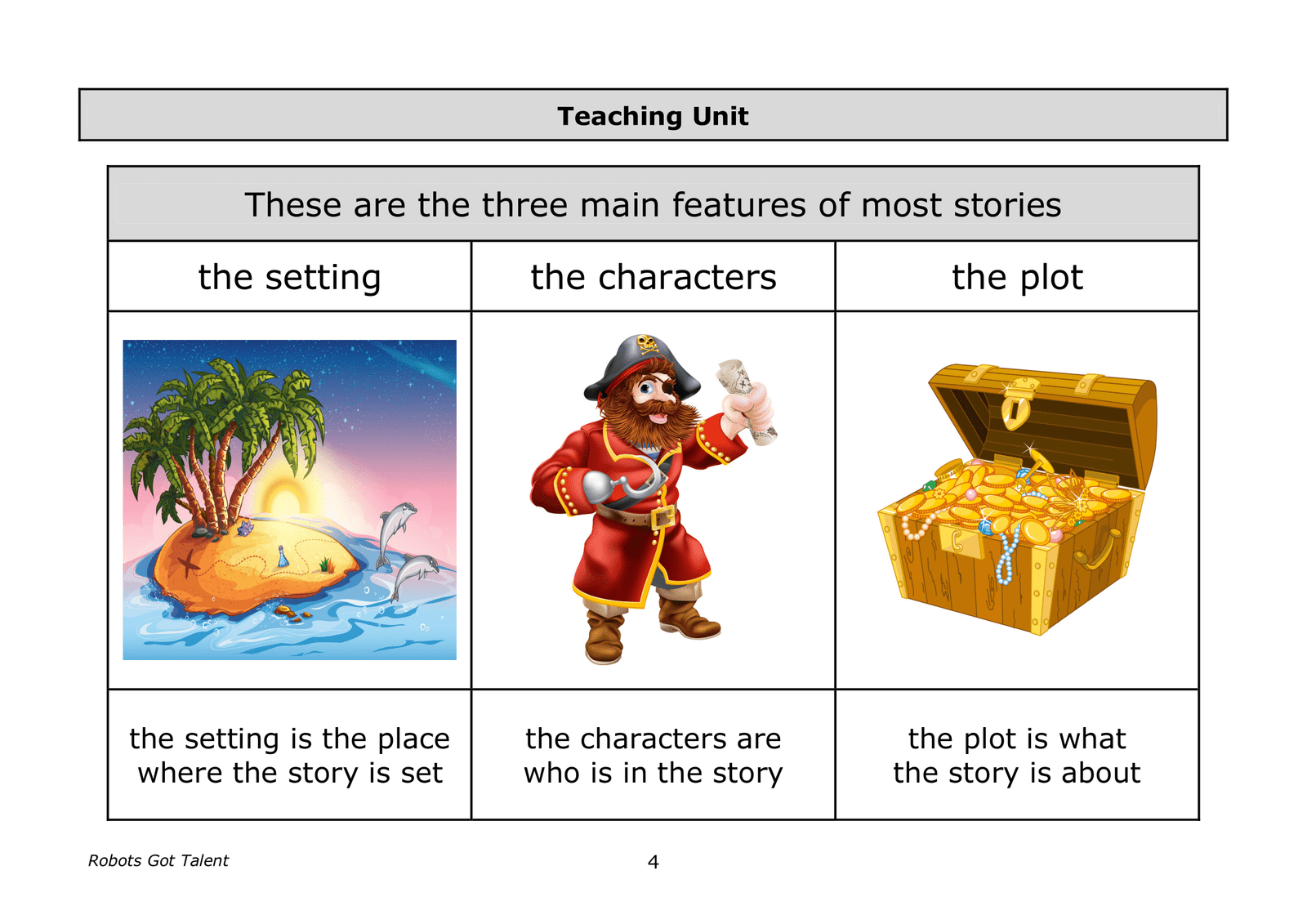



Philipem (verified owner) –
We asked a.i. to review this lesson. This is what it said:
Title: Bring Science Fiction to Life with This Poster Project “Robots Got Talent” Rating: ⭐⭐⭐⭐⭐
The “Robots Got Talent” lesson is an engaging way to teach core literacy skills alongside collaborative and independent learning competencies. Through creating science fiction story posters, students analyse story structure, themes, and genre conventions.
Explicitly mapping out the key elements of sci-fi narratives promotes comprehension and creativity. Pupils practise summarising, determining importance, and visual communication. The mix of independent and partnered tasks also caters to various learning styles.
What takes this resource from good to great is its evidence-based approach. Activities are aligned to four EBL skills: independent learning, collaboration, peer assessment, and peer teaching. Simple icons reinforce this link between practices and research-backed capabilities.
The peer teaching exercise, where students explain sci-fi concepts to partners, exemplifies the interplay of literacy and 21st century skills. Those listening build understanding through auditory input while explainers deepen grasp via the act of teaching.
For professional development, teachers can refer to the 5-minute CPD section on peer assessment. It distills research findings into actionable, bite-sized steps for elevating classroom practices.
Overall, I’d rate “Robots Got Talent” a solid 5 stars. It achieves the trifecta of engaging subject matter, literacy skill-building, and future-ready competencies – exactly what an evidence-based lesson strives for. The versatile poster format also makes it suitable for displays and themed classroom decor.